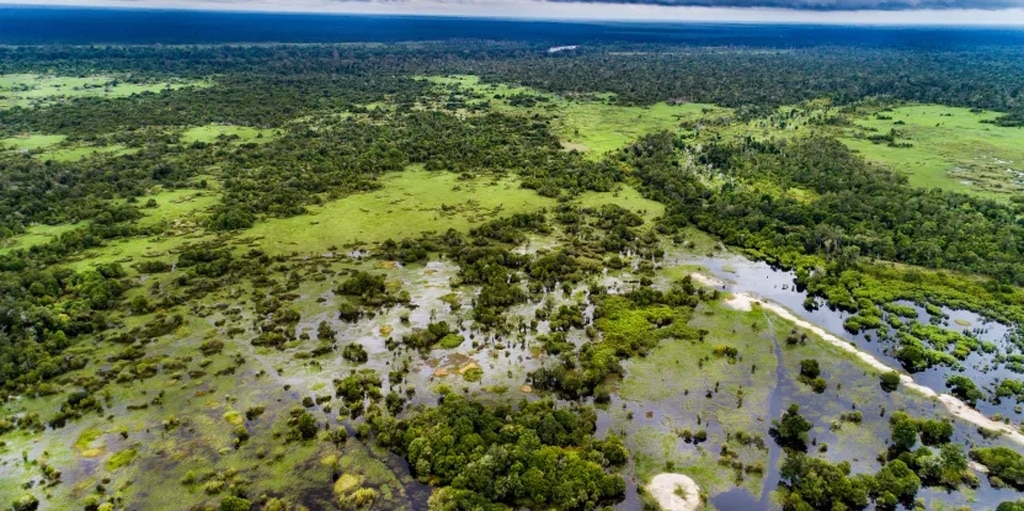This is a critical time for the survival of the peatlands. Industrial activities, in particular mineral extraction, oil exploitation and infrastructure construction, are threatening to destroy these wetlands, as a report by several researchers points out. The Democratic Republic of Congo (DRC), for example, will be trying over the next few years to make the most of its wetlands, which are recognised as important carbon sinks for the planet.
A total of six provinces are involved in this nature protection initiative. These are Mai-Ndombe, Mongala, Sud-Ubangi, Tshopo, Tshuapa and Équateur, where a Greenpeace mission in 2017 discovered the world’s largest peatland reserve in Lokolama. A consultation was recently held between the local authorities with the support of the Fonds national REDD+ (Fonaredd) and the Central African Forest Initiative (CAFI).
The Kinshasa meeting resulted in a number of resolutions, notably the synergy of funding for investments compatible with peatland conservation and sustainable development. The DR Congolese governors also promised to work together to link the regional planning model to sustainable peatland management. This means that the targeted wetlands will no longer be “drained or dried out for fear that they could become a greenhouse gas (GHG) emission bomb”, say the Congolese DR governors, in a joint statement.
Read also-DRC: Kinshasa, Jakarta and Brasilia get together for the Three Basins Summit
This is not the first time that the future of peatlands has been the subject of debate in this Central African country. In 2022, during the official visit of Antony Blinken, the US Secretary of State, a joint DRC-US working group was set up to examine the obstacles to protecting the tropical forest and peatlands of the Congo Basin. Oil and gas projects built around these natural areas have been singled out by environmental organisations.
Benoit-Ivan Wansi
